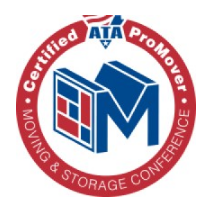Where to Move from Texas: Top 10 States for Ex-Texans in 2025

Where to Move from Texas: Top 10 States for Ex-Texans in 2025
Record numbers of Texans are exploring life beyond state lines, driven by soaring housing costs, evolving career landscapes, and the search for new lifestyle opportunities.
The decision to leave Texas stirs intense emotions – after all, the Lone Star State‘s unique culture and independent spirit leave an indelible mark on its residents. Yet for many, the promise of snow-capped Colorado peaks, Florida’s sun-drenched shores, or Tennessee’s rolling hills beckons with new possibilities.
Recent migration data reveals fascinating patterns in where Texans are choosing to plant new roots. Western states draw outdoor enthusiasts and tech professionals, while southeastern destinations attract those seeking a familiar cultural backdrop with fresh economic opportunities.
Each potential destination presents its own combination of advantages, from booming job markets and tax benefits to recreational offerings and community characteristics.
Beyond just choosing a new home state, successful relocation demands careful consideration of practical realities. Housing costs vary dramatically between regions, state tax structures can significantly impact take-home pay, and climate differences may require lifestyle adjustments.
Drawing from decades of experience helping families transition between states, we’ll explore these crucial factors while providing concrete strategies for a smooth interstate move. Whether you’re drawn to metropolitan energy or seeking small-town charm, this guide helps transform your moving aspirations into actionable plans.
Top Destinations For Former Texans
Western States Appeal
The American West beckons Texans with its distinctive fusion of opportunities and lifestyle choices. Moving to Colorado emerges as a standout option, matching Texas’s tax-friendly environment while adding year-round outdoor adventures to the mix.
Picture yourself skiing fresh powder in the Rockies one weekend, then hiking through majestic national parks the next – just pack those extra layers for temperatures that average 20-30 degrees cooler than Texas.
Arizona feels like a natural transition for sun-loving Texans. With 300+ days of sunshine annually and home prices averaging 15% lower than Texas metros, you’ll find familiar wide-open spaces wrapped in stunning desert vistas.
The state’s 200+ golf courses don’t hurt either. Moving to California offers access to its powerhouse economy – the world’s 5th largest – providing everything from Silicon Valley tech positions to Hollywood creative roles.
While living costs run 30-50% higher than in Texas, the combination of perfect weather and unmatched career opportunities continues to draw ambitious professionals.
Southern Comfort Options
Florida captures the hearts of Texans seeking familiar warmth with a coastal twist. Here’s what makes the Sunshine State shine:
- Zero state income tax (just like home)
- 825 miles of pristine beaches
- Growing job markets in Tampa and Jacksonville
- Housing costs 10-15% lower than in major Texas cities
Tennessee has transformed into a Texan favorite, especially around Nashville and Memphis. The state delivers an irresistible package: cost of living 12% below the national average, breathtaking Smoky Mountain views, and America’s most energetic music scene.
Meanwhile, moving to Georgia offers serious career potential, with 15 Fortune 500 headquarters and the world’s busiest airport connecting you to global opportunities – all while keeping that warm Southern hospitality alive.
Neighboring States
Looking for a shorter move? Oklahoma feels like home with a twist. Both Oklahoma City and Tulsa offer contemporary amenities at 8-10% lower living costs than Texas metros, while maintaining strong ties to their Western heritage. The average home price sits about $50,000 below comparable Texas properties.
New Mexico enchants with its rich cultural terrain and diverse opportunities. From Los Alamos National Laboratory to thriving artist communities in Santa Fe, career paths here span high-tech to creative pursuits.
Louisiana brings its own flavor to the table – literally and figuratively. Cities like Baton Rouge and New Orleans showcase distinctive Cajun culture while offering solid opportunities in healthcare, education, and tourism. Plus, you’re just a quick drive from Texas family and friends.
Drawing from 100+ years of moving experience, we’ve helped thousands of families make these transitions successfully. Each destination offers unique advantages – whether you’re chasing career growth, lifestyle changes, or more affordable living. The perfect choice aligns with your personal priorities and vision for the future.
Financial Implications
Living costs can make or break your relocation success. When saving money to move out, consider that California’s living expenses typically run 30-50% higher than Texas, while states like Oklahoma and Tennessee offer budget-friendly alternatives with modern amenities and growing job markets.
Here’s something crucial to consider – tax structures vary dramatically by state. Take Texas and Florida, where residents enjoy zero state income tax.
Compare that to California or Colorado, where state taxes can take a significant bite from your paycheck. While California boasts a seemingly lower property tax rate, the higher property values often result in larger annual tax payments.
The housing market tells its own unique story across regions:
- Colorado’s popular areas show consistent price appreciation
- Southern states maintain relatively affordable housing options
- Timing your move with market cycles can lead to substantial savings
- Local market conditions affect both selling and buying power
Career Opportunities
The job market varies considerably across different geographic areas. For instance:
- California and Georgia lead in technology and entertainment sectors
- Florida shows particular strength in healthcare and tourism
- Colorado specializes in aerospace and renewable energy
- Each state’s unique industry mix creates distinct career paths
Remote work has transformed the relocation equation. More professionals now choose locations based on lifestyle preferences rather than office proximity. This shift opens exciting possibilities – imagine working your current job while living in Tennessee’s scenic mountain communities or New Mexico’s thriving creative hubs.
Lifestyle Changes
Climate differences go far beyond basic temperature variations. Florida shares Texas’s warmth but adds unique considerations:
- Higher humidity levels year-round
- Hurricane season preparations
- Different gardening and outdoor living patterns
- Seasonal weather impacts on daily activities
Cultural transitions vary significantly by region. Southern states typically offer familiar territory for Texans, sharing similar values and traditions. Western states like California and Colorado present different social interactions – think farmer’s markets instead of football Fridays – but offer enriching opportunities for personal development.
Recreational access often determines long-term satisfaction in your new home. Each region brings distinct opportunities:
- California: Year-round surfing and beach activities
- Colorado: World-class skiing and mountain trails
- Tennessee: Energetic music scene and historical attractions
- Florida: Water sports and theme park entertainment
The key to a successful transition lies in matching these lifestyle elements with your personal preferences and priorities. Consider visiting your target location during different seasons to experience daily life firsthand.
Planning Your Interstate Move
Timeline Development
Understanding the moving timeline and starting your interstate move preparations 8-12 weeks ahead sets you up for success. Here’s a proven approach that’s helped thousands of families make smooth transitions across state lines.
Preparing for a move begins with essential tasks like booking your moving company, decluttering your home, and creating a detailed inventory. At Nelson Westerberg, our video survey system takes the guesswork out of planning, delivering precise estimates and customized moving solutions.
The moving process brings its own rhythm and requirements. While our Pro-certified teams handle the heavy lifting with specialized equipment, you’ll want to focus on coordinating the final details:
- Scheduling utility disconnections
- Completing last-minute cleaning
- Preparing essential items boxes for immediate access
- Documenting the condition of valuable items
The first week in your new home shapes your entire settling-in experience. Prioritize unpacking essential rooms like the kitchen and bedrooms first. Our experienced teams can streamline this process by handling furniture reassembly and room setup, transforming your new space into a functional home faster.
Budget Considerations
Understanding the average cost of moving company services is crucial, as interstate moving costs reflect three key factors: distance, volume, and service level.
A full-service move includes professional packing, loading, transportation, and unpacking – giving you peace of mind throughout the process. Thanks to our TRAXX® operating system, you’ll receive crystal-clear pricing without surprise fees or hidden charges.
Smart travel planning goes beyond basic transportation costs. Consider these essential expenses:
- Temporary lodging during transit
- Meals and snacks for travel days
- Vehicle transportation or shipping fees
- Short-term storage if needed
- Fuel costs if driving
Setting up your new home often involves more expenses than most people anticipate. Beyond standard housing costs, prepare for utility deposits, basic supplies, and those inevitable first-week purchases. Based on decades of moving experience, we recommend setting aside 1-2% of your total moving budget for unexpected expenses – it’s better to have it and not need it.
Legal Requirements
Your new state welcomes you – but expects prompt attention to legal requirements. Most states require new residents to complete registration within 30-90 days of arrival. This includes:
- Vehicle registration updates
- Insurance policy transfers
- Address changes for official documents
- Local tax registration where applicable
Getting your new driver’s license typically requires an in-person DMV visit within your first few months. Bring these essential documents:
- Current valid license
- Proof of residency (utility bills or lease)
- Social Security card
- Birth certificate or passport
- Additional state-specific documentation
Maintaining your voting rights means updating your registration in your new location. While most states offer convenient online registration, remember to notify your previous state’s election office. Our relocation specialists can guide you through specific state requirements, ensuring you meet all legal obligations without unnecessary stress.
Community Integration
Getting settled in a new community is about more than just unpacking boxes – it’s about creating meaningful connections. While social media and community apps offer great starting points for discovering your neighborhood, real relationships bloom through genuine face-to-face interactions.
Local Facebook groups and platforms like Nextdoor can point you toward upcoming events and neighborhood gatherings worth exploring.
Ready to delve into community life more thoroughly? Local organizations provide natural settings for meeting people who share your passions. Here’s where to start:
-
- Professional networking groups specific to your industry
- Recreational sports leagues and fitness classes
- Community service organizations
- Hobby-based clubs (book clubs, gardening groups, craft circles)
The heart of any community beats strongest during local events and traditions. From bustling farmers’ markets to annual festivals, these gatherings highlight your new hometown’s distinctive character.
Make it a priority to attend at least one community event each month during your first season – you’ll be surprised how naturally conversations flow when everyone’s enjoying shared experiences.
Family Adjustments
In school transitions, timing and preparation make all the difference. Start your school research at least 3-4 months before moving day. Schedule virtual tours first, then arrange in-person visits for your top choices. Here’s a practical timeline we’ve developed from helping thousands of families:
- 4 months out: Research schools and request information packets
- 3 months out: Schedule virtual/in-person tours
- 2 months out: Request and organize academic records
- 1 month out: Connect with school counselors and teachers
Healthcare continuity matters for family well-being. Build your medical network before you need it by establishing these essential connections:
- Primary care physicians for each family member
- Pediatricians (if applicable)
- Specialists for ongoing health conditions
- Dental and vision care providers
- Local emergency care facilities
- Neighborhood pharmacies
Building a strong social foundation takes intentional effort. While technology makes it easier to stay connected with loved ones back home, creating new local relationships requires stepping out of your comfort zone. The most successful transitions we’ve seen involve families who embrace a mix of activities:
- Parent-teacher organizations
- Faith-based communities
- Youth sports programs
- Neighborhood playgroups
- Community classes and workshops
Remember, creating your new social circle isn’t a race – it’s about finding genuine connections that enrich your family’s life. Focus on gradually building meaningful relationships rather than trying to replicate your entire previous social network overnight.
Frequently Asked Questions
- What states offer the lowest cost of living compared to Texas?
Looking to stretch your dollar further? Oklahoma leads the pack as a budget-friendly alternative to Texas, with housing costs running 15-20% lower while maintaining that familiar Southern charm.
Arkansas and Mississippi also offer significant savings on daily expenses. Here’s something to consider: while these states deliver on affordability, they typically feature fewer metropolitan areas and job markets compared to Texas’s booming economy.
- How long should I plan for an interstate move from Texas?
A successful interstate move needs at least 8-12 weeks of preparation time. Break it down like this: 4-6 weeks for sorting and decluttering your home, 2-3 weeks for researching and securing reliable movers, and 2-3 weeks for packing and paperwork.
Moving during peak season (May-September)? Start your planning even earlier – ideally 3-4 months ahead – especially if you’re relocating with family. This extra cushion helps avoid last-minute stress and typically secures better rates.
- Which states have similar cultural values to Texas?
Want to feel at home in your new state? Oklahoma, Tennessee, and Georgia share that distinctive Southern DNA with Texas – think warm hospitality, strong community bonds, and family-focused neighborhoods.
These states strike a familiar balance between city convenience and country comfort. Each offers its own combination of modern opportunities while preserving those traditional values that make Texas special.
- What documents do I need when moving to another state?
Creating your moving document checklist? Start with these essentials: driver’s license (needs updating within 30-90 days), vehicle registration, and voter registration. Don’t forget proof of residence, birth certificates, social security cards, and medical records.
Professional credentials need attention too – gather any licenses or certifications you’ll need to transfer. Insurance policies (health, auto, home) require updates for your new location, so add those to your must-handle list.
- How can I find employment before moving from Texas?
Launch your job search 3-6 months before moving day for best results. Today’s digital world makes remote job hunting easier: use LinkedIn and industry-specific job boards, connect with specialized recruiters who know your target market, and take advantage of virtual interviews.
Pro tip: update your resume with your planned relocation date and target location. Many employers now embrace video interviews, though occasionally you might need to travel for crucial face-to-face meetings.
Conclusion
Moving from Texas opens the door to an exciting new chapter in your life story. Each potential destination brings its own unique flavor – from the majestic mountain trails of Colorado to Florida’s sun-soaked beaches. Here’s what makes this transition special: you’re not just changing locations, you’re embracing fresh opportunities designed to match your dreams.
Success in your interstate move comes down to smart preparation and knowing exactly what matters most to you. Looking for more affordable living? Oklahoma might be your answer. Chasing career growth? California’s adaptive job market could be calling. Missing that familiar Southern charm? Several neighboring states offer cultural touch points that’ll feel just like home.
Here’s a practical tip: give yourself 8-12 weeks of planning runway. That’s not just a random number – it’s based on years of helping families make successful interstate moves. This timeline gives you breathing room to handle everything from housing arrangements to school transfers without feeling overwhelmed.
- Research your destination’s cost of living
- Explore job markets and career opportunities
- Consider climate and lifestyle adjustments
- Plan for housing and neighborhood options
- Factor in educational needs if applicable
Remember, this isn’t just about moving boxes – it’s about moving your life. Working with experienced interstate movers who know Texas relocations inside and out can transform what might seem overwhelming into a manageable journey. They’ll help steer everything from cross-state regulations to the best routes for your belongings.
Your perfect destination is out there, waiting for you to discover it. Take time to weigh your options, crunch the numbers, and envision your new life. With thorough planning and the right support, you’re not just leaving Texas – you’re heading toward your next great adventure.
Related Articles
How to Move a House from One Location to Another: Planning to Completion

Relocating an entire house might seem like something out of a movie, but this remarkable feat of engineering happens more often than you’d think. From preserving historic mansions to saving beloved family homes from coastal erosion, house moving represents the intersection of cutting-edge engineering and practical problem-solving. With project costs typically ranging from $18,000 to […]
Read MoreComplete Process of Moving Guide: Expert Tips for a Smooth Relocation

Life’s biggest transitions often start with a single box. Moving to a new home represents more than just relocating belongings – it’s a journey that transforms spaces, routines, and possibilities. After guiding thousands of successful moves over 110 years, we’ve discovered that even the most complex relocations become manageable through proper planning and strategic execution. […]
Read More




